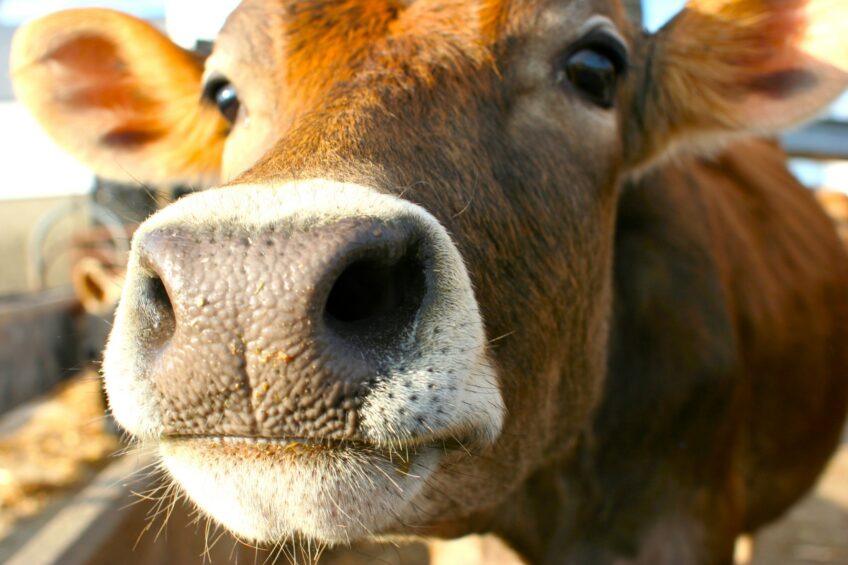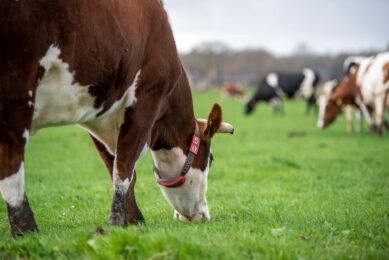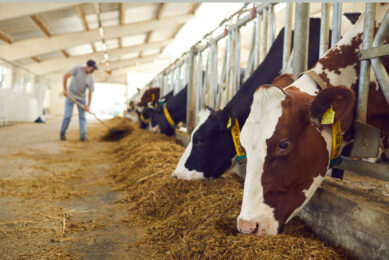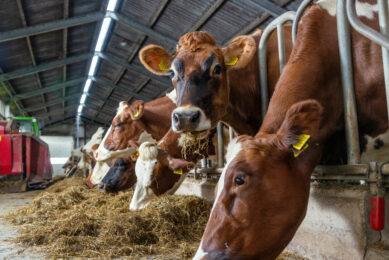Addressing enteric methane production in dairy cattle

To address greenhouse gases emissions, the focus has been on decreasing emissions intensity by increasing animal productivity, dietary supplementation of methane inhibitors and rumen fermentation modifiers.
Improvements in genetics, nutrition, health and management have increased meat and milk production from individual cows. In parallel, greater feed intake, digestion, and manure output enhance the total emission of enteric methane per animal. However, improved herd management and animal health, and greater productivity of feed crops, decrease the emission of methane per unit of product or emission intensity due to lower maintenance requirements.
The application of this approach in developing countries with low productivity systems assists rural development and improves food security. But, increased productivity may motivate the use of resources and land for agriculture which conflicts the improvement of emissions intensity.
Application of methane inhibitors
Methane inhibitors are chemical compounds that are fed to dairy cows to inhibit methane formation. Methane inhibitors alter the structure or the function of key drivers of methane formation. Chemical methane inhibitors such as 3-Nitrooxypropanol and bromoform-containing algae such as red seaweed are the most effective means to decrease enteric methane emissions.
Red seaweed has tremendous potential in reducing methane formation without affecting forage digestibility. In addition, the bromoform present in red seaweed is a natural methane inhibitor that improves dairy cow production and health.
Application of rumen fermentation modifiers
Rumen fermentation modifiers cause favourable changes in the rumen environment, decrease methane formation, enhance the availability of dietary protein for dairy cows, and improve productivity and health.
Tannins and essential oils are naturally-occurring rumen modifiers that decrease methane formation. Tannins are secondary metabolites of plants with the ability to bind to proteins which reduces protein breakdown in the rumen and increases protein breakdown in the abomasum. Tannins reduce enteric methane emissions by 13-16% in dairy cattle. Although excessive tannins inclusion in dairy cow diet reduces digestibility and production performance.
Essential oils are secondary plant metabolites with various structures and functions. The blend of coriander seed oil and extracts from common nutmeg and wild carrot reduces enteric methane emission by 6-11% and improves production performance. In addition, a blend of garlic and citrus extracts demonstrates reduced methane yield 12 weeks after the start of supplementation.
Conclusion
Various solutions such as decreasing emissions intensity by increasing animal productivity, adding methane inhibitors, and rumen fermentation modifiers to dairy cow diets, can be used to address global warming. However, further research is needed to ensure these solutions are cost-effective, feasible for adoption in different production systems, and safe for the environment and humans.
References are available upon request.
Join 13,000+ subscribers
Subscribe to our newsletter to stay updated about all the need-to-know content in the dairy sector, two times a week.










